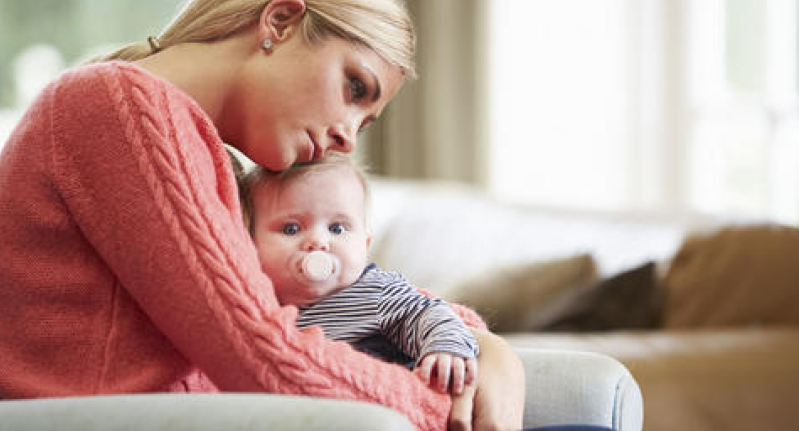
Women who stop breastfeeding due to pain or difficulty getting babies to nurse may be more likely to develop postpartum depression than mothers who stop nursing for other reasons, a small U.K. study suggests.
Pediatricians recommend that mothers exclusively breastfeed infants until at least six months of age because it can reduce babies' risk of ear and respiratory infections, sudden infant death syndrome, allergies, childhood obesity and diabetes.
Mothers can benefit too, with longer periods of breastfeeding linked to lower risks of depression, bone deterioration and certain cancers.
Whether women experience depression after breastfeeding may be related to how much they felt they had control over the reasons that motivated them to stop, lead study author Amy Brown of Swansea University in Wales said by email.
"Perhaps if new mums stop breastfeeding because they find it embarrassing or for lifestyle issues then they feel a personal benefit from doing so - maybe they're ready to stop," Brown said.
"However, if they feel they have to do it because of pain or physical difficulties then they may not be so ready and really want to continue, but feel the choice has been taken away from them," Brown added. "They may also worry that they're doing it 'wrong' or in some way they are to blame."
Brown and colleagues analyzed questionnaires from 217 women who started breastfeeding when their babies were born but stopped before six months.
Questions touched on how long women breastfed, why they stopped and also measured depression.
Women were 32 years old on average, and most were married or living with a partner. Typically, they had professional or managerial jobs and at least some higher education.
Overall, the earlier women stopped breastfeeding, the higher their postpartum depression score was on the questionnaires, according to the results in the Journal of Advanced Nursing.
But this association could mostly be explained by women's experiences breastfeeding.
Pain, cracked nipples, breast infections and challenges with milk production or getting babies to latch on and suck properly were all reasons for stopping that were linked to an increased risk of depression than other causes.
It's also possible, however, that postpartum depression might lead women to perceive breastfeeding as a more painful or physically difficult experience, the authors note.
Shortcomings of the study include its sample of older-than-average new mothers with more education and professional occupations than might be typical in the general population, the authors acknowledge as well. The questionnaire may also be an imperfect measure of depression, the researchers note.
Still, the findings highlight the need for women to get support to help work out any challenges with breastfeeding, whether from doctors or midwives or volunteer organizations, Brown said.
"The better informed the mother is about breastfeeding and its potential benefits, the better for her mental health," said Cristina Borra, a researcher at the University of Seville in Spain who wasn't involved in the study.
When women don't get enough education about the benefits and logistics of breastfeeding during pregnancy and right after delivery, they are more likely to struggle, Borra said by email.
In previous research, Borra found that the benefits of breastfeeding were concentrated among mothers who were not previously depressed, planned to nurse their babies and then were able to do so.
"For the majority of mothers - not at risk of depression during pregnancy - being able to follow their plans was positive for their mental health," Borra said.
SOURCE: http://bit.ly/1kb6JoX Journal of Advanced Nursing, online October 23, 2015.







